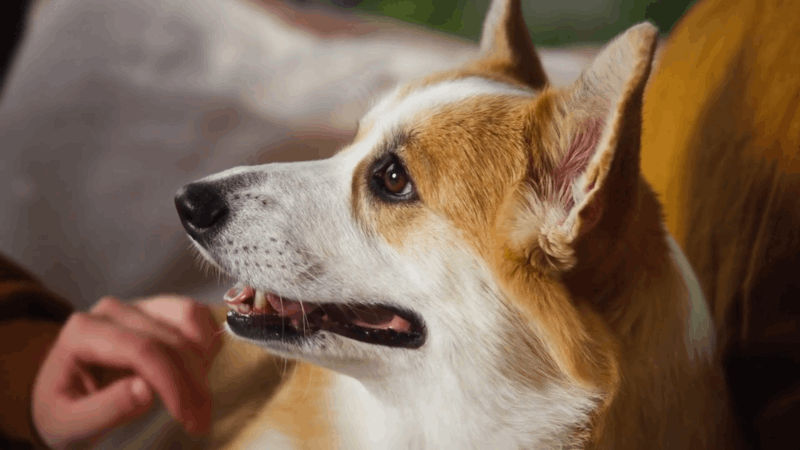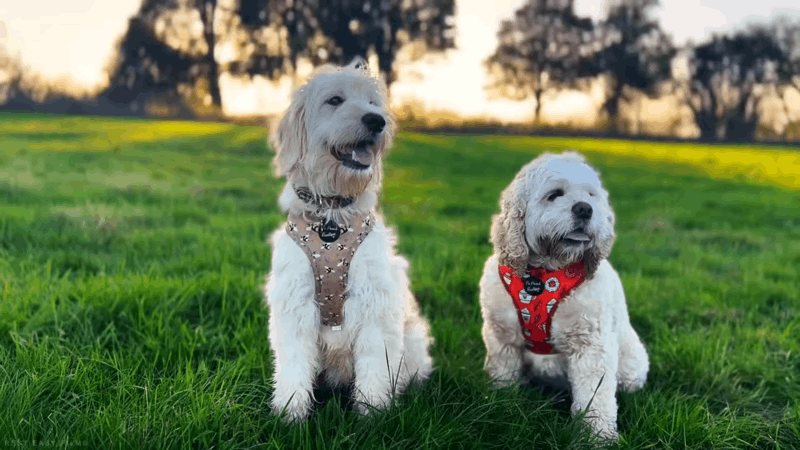No products in the cart.
CBD oil for dog fatty tumor is gaining attention as a potential natural solution for managing this common issue. A dog may have discomfort and limited mobility due to benign growths called lipomas, which are fatty tumors.
The ways that CBD oil can improve your dog’s quality of life, assist control symptoms, and offer a safe, practical substitute for conventional medicines will be discussed in this blog. We will also discover the benefits of CBD oil for treating fatty tumors in dogs and how it can support your pet’s health naturally.
Understanding of Fatty Tumor in Dogs

Fatty tumors are common benign growths in dogs, they are also often called as lipomas. These tumors are composed of fat cells and typically develop just beneath the skin. While they are generally not harmful, they can become large and may cause discomfort or mobility issues if located in certain areas. Lipomas are most commonly found in middle-aged and older dogs, they will have different sizes from small nodules to large masses.
What Do Fatty Tumors Look Like in Dogs?
Fatty tumors in dogs usually appear as soft, round, or oval lumps under the skin. They are often movable when touched and have a smooth texture. Trunks, limbs, and necks are the common location that these tumors can be found on a dog’s body. While they are typically not painful, their presence can sometimes cause the skin over the tumor to stretch, leading to discomfort.
What Causes Fatty Tumors in Dogs?
The precise cause of dog fatty tumors is unknown, however, they may develop for a number of reasons. These include:
- Genetics: Lipomas can develop in some breeds, suggesting a genetic component.
- Age: Older dogs are more likely to develop fatty tumors.
- Weight: Overweight and obese dogs have a higher incidence of lipomas.
- Diet: Poor diet and lack of exercise may contribute to the development of fatty tumors.
- Metabolic factors: Abnormalities in fat metabolism may play a role.
Lipomas are generally benign and do not spread to other parts of the body, however, monitoring any new or existing lumps and consulting a veterinarian to rule out other types of tumors or health concerns are so important.
How Common are Fatty Tumors in Dogs?

Dogs often develop fatty tumors, particularly middle-aged and elderly dogs. They are among the benign tumor forms in dogs that are diagnosed most commonly. Labrador Retrievers, Dachshunds,Cocker Spaniels and Miniature Schnauzers are the certain breeds that are more prone to developing lipomas. While the exact prevalence varies, it is not unusual for a veterinarian to encounter multiple cases of lipomas in a clinical practice.
Are Fatty Tumors Dangerous in Dogs?
Fatty tumors, or lipomas, in dogs are generally not dangerous as they are benign (non-cancerous) tumors composed of fat cells. However, there are some situations where they can cause issues:
- Size and location: If a lipoma grows large, it can become uncomfortable for the dog, especially if it’s located in an area that affects movement, such as near joints or under the limbs.
- Interference with function: Rarely, lipomas may develop in places where they impede an organ’s, muscle’s, or nerve’s ability to operate normally.
- Discomfort: Although most lipomas are painless, some dogs may experience discomfort if the tumor is pressing on nerves or other structures.
To determine if treatment is necessary, monitoring any lumps on your dog and consulting with a veterinarian are so important. Regular check-ups can help ensure that any growths are properly diagnosed and managed.
Can a Fatty Tumor Turn into Cancer in Dogs?
Fatty tumors are benign and do not turn into cancer. Nonetheless, liposarcoma is a very uncommon kind of malignant fatty tumor.
Malignant liposarcomas have the ability to invade neighboring tissues and perhaps spread to other body areas.
It is important to have any new or growing lumps examined by a veterinarian to ensure they are benign lipomas and not a more serious condition. Maintaining your dog’s health and identifying any potential problems early on depend on routine monitoring and veterinary examinations.
Treatment for Fatty Tumors in Dogs

The primary treatment for fatty tumors, or lipomas in dogs is surgical removal. This is usually recommended if the tumor is causing discomfort, impeding movement, or growing rapidly. Especially if the lipoma is small, benign, and not causing any problems, veterinarians may choose to “wait and see” in some situations. To monitor any changes in size or behavior, regular monitoring is necessary.
Should You Remove Fatty Tumors in Dogs?
Several considerations, such as the tumor’s size, location, and whether or not it is causing discomfort or impeding mobility, determine whether or not to remove fatty tumors in dogs. If the tumor is benign and not problematic, removal might not be necessary. However, if it interferes with the dog’s quality of life, surgical removal is often recommended. Depending on the state of each dog, a veterinarian consultation can assist identify the best course of action.
How to Prevent Fatty Tumors in Dogs?
In dogs, fatty tumor prevention entails leading a healthy lifestyle. While there is no guaranteed way to prevent lipomas, certain measures can reduce the risk:
- Healthy diet: A healthy weight can be maintained with a balanced diet, which may lessen the chance of lipomas developing.
- Regular exercise: Keeping dogs active can help manage their weight and overall health.
- Routine check-ups: Regular veterinary visits can help detect any lumps or changes early on.
- Avoiding obesity: Keeping your dog at an ideal weight can minimize the risk of fatty tumors.
CBD Oil for Dog Fatty Tumor
Dogs with fatty tumors are among the many ailments for which CBD oil is becoming more and more well-liked as an adjunctive therapy. Although lipomas cannot be cured, CBD oil may be able to reduce discomfort and inflammation brought on by the tumors. Some pet owners report improvements in their dog’s comfort and mobility with regular CBD oil use.
Before beginning any new treatment, including CBD oil, always get advice from a veterinarian to be sure it is safe and suitable for your dog’s particular medical requirements.
Conclusion
CBD oil for dog fatty tumor offers a natural, effective way to manage discomfort and improve mobility. It can improve your dog’s quality of life by lowering inflammation and relieving pain. As a safe and holistic option, CBD oil for dog fatty tumors is worth considering in your pet care routine to support your dog’s health naturally.
Hello, I am Hazel Bennett, an experienced copywriter specializing in the fascinating topic of CBD for dogs. With a passion for pet wellness and extensive knowledge of CBD’s potential benefits, I am here to provide you with informative and engaging content.



